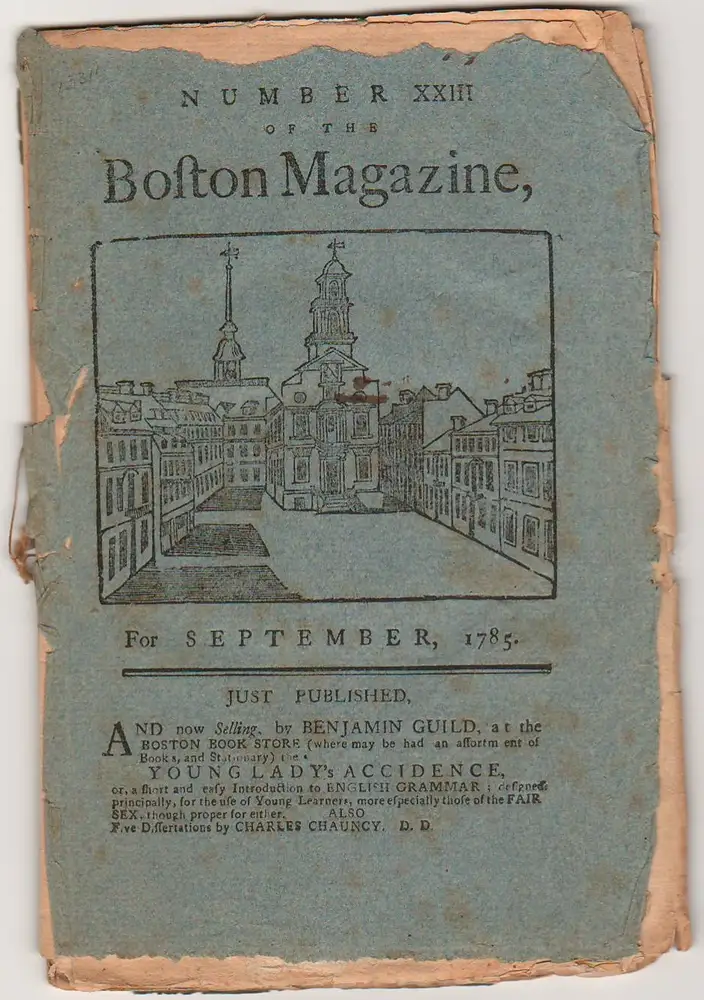Boston (1783–1786)
Boston Magazine (1783–1786) was a distinguished periodical, a harbinger of American literary culture during its nascent years. Launched in 1783, the inception of Boston Magazine coincided with the end of the Revolutionary War, a period pregnant with the hope of building a new nation.
This magazine’s pages were graced with an assemblage of essays, poems, and engravings that illuminated the intellectual discourse of the time. The readership found solace and enlightenment in the periodical’s riveting content, which elucidated an array of subjects ranging from politics and philosophy to science and the arts. The prose was imbued with a sense of gravitas, reflecting the sentiments and aspirations of a people rebuilding their land from the ashes of war.
The literary offerings of Boston Magazine were penned by an eclectic cadre of contributors. Amongst them, Phillis Wheatley, the first published African-American female poet, is perhaps the most illustrious. Her verses were a testament to the power of the human spirit, and her presence within the pages of Boston Magazine attested to the periodical’s commitment to inclusivity and diversity.
Boston Magazine was an exemplar of an 18th-century American periodical, characterized by its fervent dedication to intellectualism and literary refinement. The engravings and illustrations that adorned its pages were evocative and thought-provoking, offering visual narratives that complemented the textual content.
One of the hallmarks of Boston Magazine was its editorial sagacity. The content was meticulously curated to foster a sense of intellectual camaraderie among its readers. It was a vessel through which individuals could partake in the collective journey of nation-building, not just through political means but through the cultivation of a shared cultural and intellectual heritage.
In 1786, the illustrious journey of Boston Magazine met its denouement. Though its life was ephemeral, its impact was indelible. It occupies an exalted place in the annals of American literary history, not only as a chronicle of its time but as a standard-bearer for the ideals that would shape a fledgling nation. Boston Magazine was a tribute to the potency of the written word, and to the indomitable spirit of a people in pursuit of enlightenment and progress.{{Categories}}